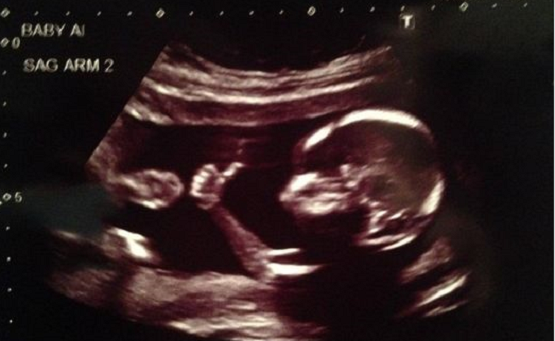At least for now, the new South Carolina Fetal Heartbeat and Protection from Abortion Act is protecting unborn babies from being aborted.
Planned Parenthood temporarily stopped doing abortions in South Carolina after Gov. Henry McMaster signed the law Thursday, the Post and Courier reports.
The pro-life law prohibits abortions after an unborn baby’s heartbeat is detectable, typically about six weeks of pregnancy. Exceptions are allowed in cases of rape, incest or risks to the mother’s life. Abortionists who violate the law could face a $10,000 fine or imprisonment for up to two years.
If enforced, the legislation has the potential to save thousands of babies’ lives. The state health department reported more than 2,500 abortions after six weeks in 2019.
However, the Planned Parenthood abortion chain immediately filed a lawsuit challenging the law, and a judge is scheduled to hear the case at 1 p.m. Friday.
Here’s more from the local news:
Follow LifeNews on the Parler social media network for the latest pro-life news!
Planned Parenthood South Atlantic spokeswoman Molly Rivera said the organization is hopeful they will be able to restart their abortion services in Columbia and Charleston this afternoon after the hearing. The clinics had already been preparing for the possibility of the bill becoming law this week, Rivera added.
U.S. District Court Judge Mary Geiger Lewis, who is scheduled to hear the case, is an appointee of President Barack Obama.
South Carolina also has one independent abortion facility, the Greenville Women’s Clinic, that is involved the lawsuit. It is not clear if the facility stopped aborting unborn babies this week.
State Attorney General Alan Wilson promised to defend the pro-life law in court.
“My office will vigorously defend this law in court because there is nothing more important than protecting life,” Wilson said in a statement.
Polls suggest many Americans support strong limits on abortion. A 2019 Hill-HarrisX survey found that 55 percent of voters said they do not think laws banning abortions after six weeks – when an unborn baby’s heartbeat is detectable – are too restrictive. Gallup polls also consistently have found that a majority of Americans think all or most abortions should be illegal.
A number of states have passed heartbeat laws in recent years, but most have been banned from enforcing them due to legal challenges by abortion activist groups. Other states with heartbeat laws include Georgia, Iowa, Kentucky, Mississippi, Missouri, North Dakota, Ohio and Tennessee. However, all of the states have been blocked from enforcing them by court orders.
Some pro-lifers have renewed hope that the U.S. Supreme Court will uphold an abortion ban and overturn Roe v. Wade. Others, however, are hesitant because of concerns about losing the court battle and being forced to reimburse pro-abortion groups for their legal fees.
Though the high court currently has a conservative majority, Chief Justice John Roberts, who was nominated by a Republican president, has sided with the liberal justices on a number of occasions.
In 1973, the Supreme Court took away the states’ ability to protect unborn babies from abortion under Roe v. Wade, and instead forced states to legalize abortion on demand. Roe made the United States one of only seven countries in the world that allows elective abortions after 20 weeks.








